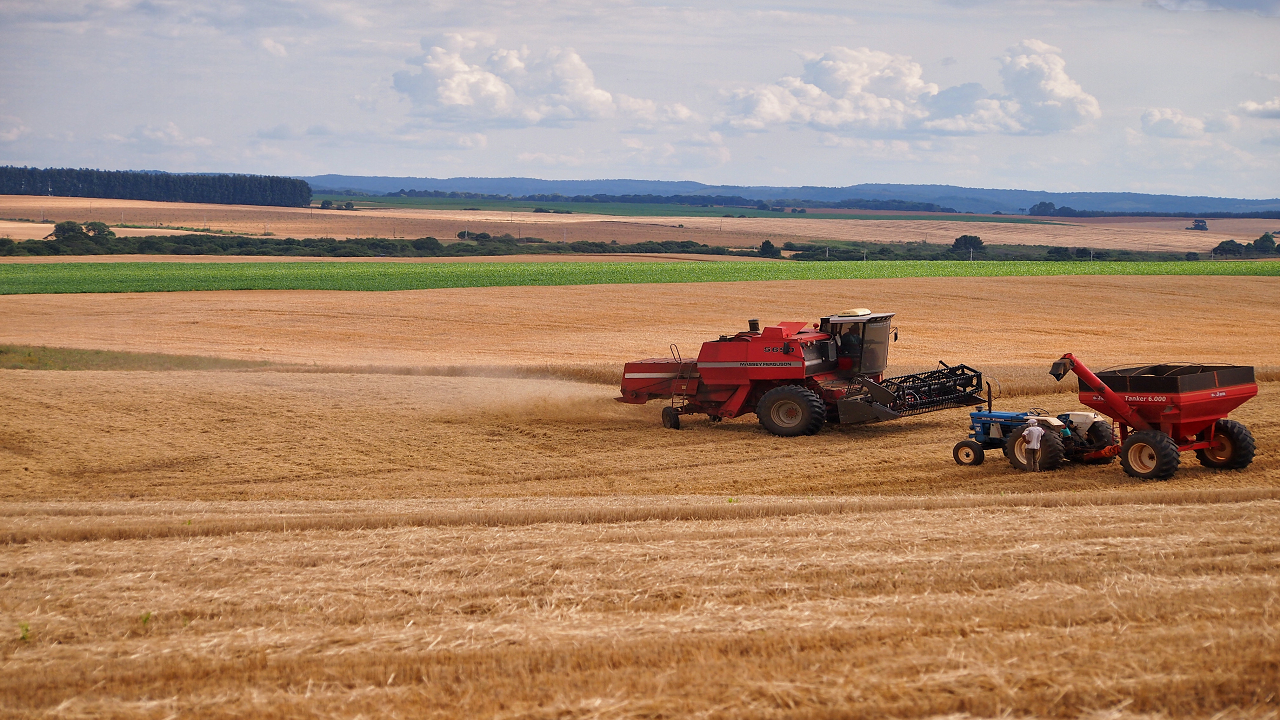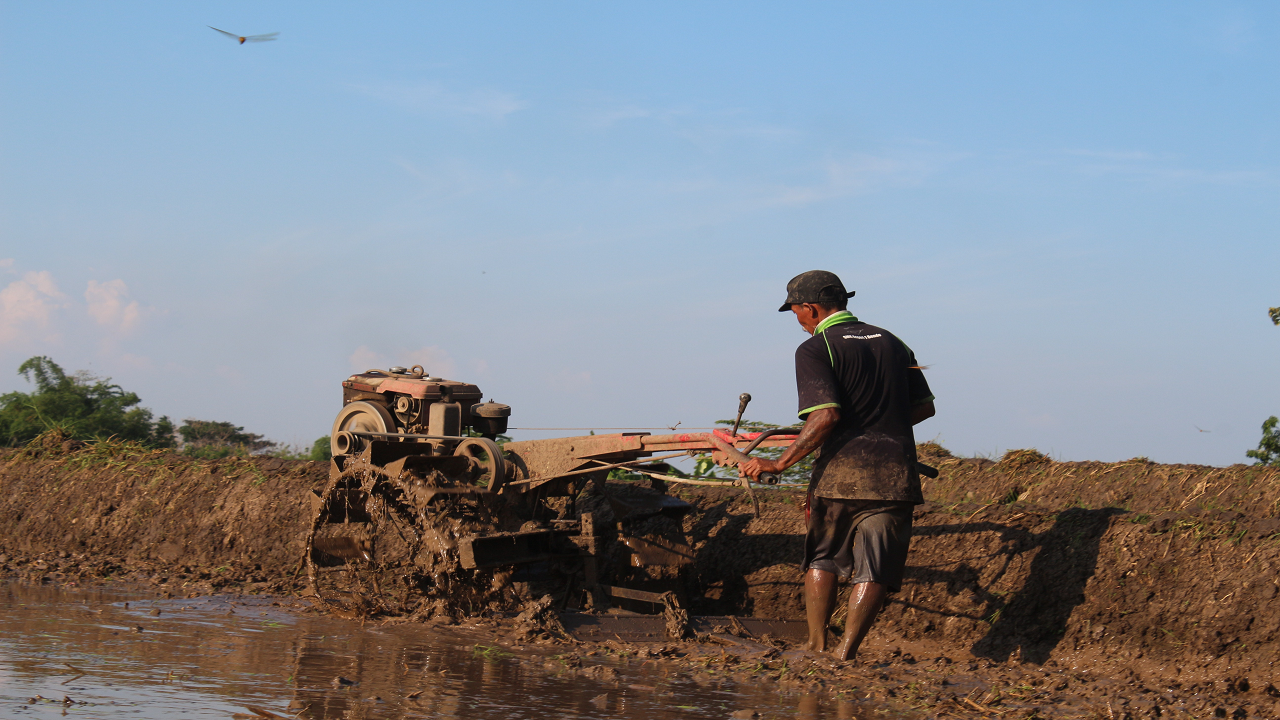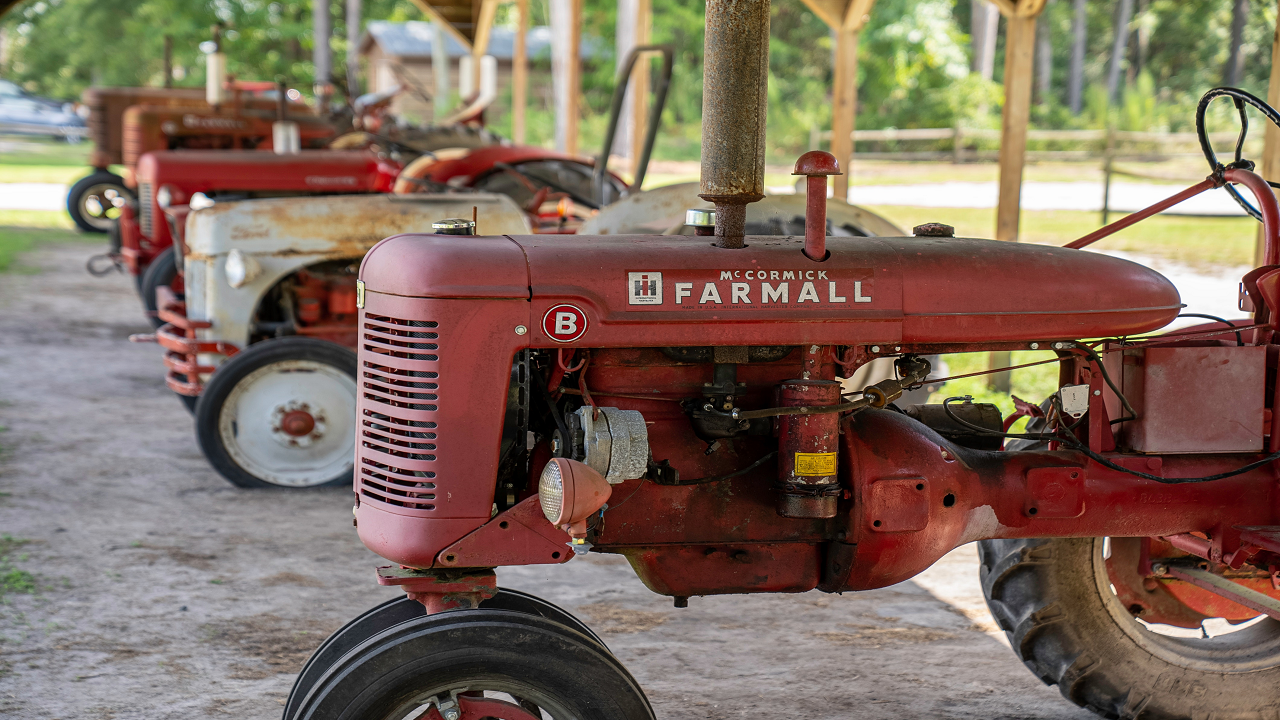
Power tillers and tractors are two essential machines that play vital roles in modern agriculture. These powerful and versatile pieces of equipment are designed to facilitate various tasks and enhance farming operations. Power tillers, compact and maneuverable, are well-suited for smaller-scale farming, gardening, and horticultural activities.
They excel in tasks such as soil preparation, inter-cultivation, and weeding. On the other hand, tractors, with their robust engines and towing capacity, are indispensable in large-scale farming, handling tasks ranging from field preparation and planting to crop care, harvesting, and material handling. Together, power tillers and tractors revolutionize agricultural practices, enabling farmers to work efficiently, increase productivity, and meet the demands of a growing population.
Power Tillers and Tractors are agricultural machines used for various farm tasks, but they differ in size, power, functionality, and applications.
Key Differences Between Power Tillers And Tractors
Size and Power:
Power Tillers: Power tillers are smaller and compact machines designed for light to medium-duty tasks. They typically have engine power ranging from 5 to 15 horsepower (HP) and are suitable for small-scale or backyard farming operations.
Tractors: Tractors are larger and more powerful machines capable of handling heavy-duty tasks. They come in a range of sizes and power outputs, with horsepower ranging from 20 to several hundred HP. Tractors are suitable for large-scale farming operations and can handle various implements and attachments.
Functionality:
Power Tillers: Power tillers are primarily used for soil preparation tasks such as ploughing, tilling, harrowing, and cultivating small to medium-sized fields. They are compact and maneuverable, making them suitable for narrow or confined spaces. Power tillers usually come with a limited range of attachments.
Tractors: Tractors are versatile machines capable of performing a wide range of tasks. They can be used for soil preparation, ploughing, tilling, planting, harvesting, hauling, and more. Tractors have the ability to connect and operate various implements and attachments, such as ploughs, disc harrows, seeders, sprayers, loaders, and mowers.
Applications:
Power Tillers: Power tillers are commonly used in small-scale agriculture, horticulture, and gardening operations. They are ideal for cultivating vegetable gardens, orchards, nurseries, and small plots of land. Power tillers are also suitable for tasks like weed control, inter-cultivation, and seedbed preparation.
Tractors: Tractors find applications in a wide range of agricultural operations, including large-scale farming, field preparation, crop cultivation, harvesting, and transportation. They are also used in non-agricultural tasks such as construction, landscaping, and material handling.
Cost and Maintenance:
Power Tillers: Power tillers are generally more affordable compared to tractors. They have simpler designs, fewer components, and lower horsepower engines, which contribute to their lower cost. Maintenance and repair costs for power tillers are typically lower as well.
Tractors: Tractors tend to be more expensive due to their larger size, higher horsepower engines, and the ability to handle various implements. Maintenance and repair costs for tractors can be higher, especially for larger and more complex models.
The Scale of Operations:
Power Tillers: Power tillers are suitable for small to medium-scale farming operations, backyard gardens, and specific applications where compact size and manoeuvrability are essential.
Tractors: Tractors are designed for medium to large-scale farming operations, where higher power, efficiency, and the ability to handle a wide range of implements are necessary to maximize productivity.
Use of Power Tillers and Tractors
Power tillers and tractors are indispensable machines in agriculture, serving crucial roles in different aspects of farm operations. Power tillers excel in smaller-scale tasks, such as soil preparation, inter-cultivation, and gardening. With their compact size and manoeuvrability, they are ideal for tilling small to medium-sized fields, creating seedbeds, and removing weeds without damaging the crops. Power tillers are also valuable in orchards and vineyards, where their ability to navigate narrow rows allows for efficient soil cultivation and weed control.
On the other hand, tractors are vital for large-scale farming operations. Equipped with powerful engines and a wide range of attachments, tractors handle tasks like ploughing, planting, crop care, and harvesting. Their strength and towing capacity enables them to handle heavy implements, ensuring efficient field preparation, precise seeding, and effective crop management. With their versatility, power tillers and tractors contribute significantly to the productivity and success of agricultural practices, helping farmers achieve optimal yields and sustainable farming practices.
Tillers:
Power tillers are versatile machines that find numerous applications in agriculture, horticulture, and gardening. One of their primary uses is soil preparation. With their robust engines and rotating tines or blades, power tillers can break up compacted soil, remove weeds, and create a suitable seedbed for planting. They are efficient in tilling small to medium-sized fields, vegetable gardens, and flowerbeds, ensuring proper aeration and soil structure.
In addition to soil preparation, power tillers are valuable for inter-cultivation and weeding. Their maneuverability allows farmers to navigate between rows of crops, gently removing weeds without damaging the plants. By keeping the soil weed-free, power tillers help optimize the growth and productivity of the cultivated plants.
Power tillers also play a crucial role in orchards and vineyards. Their compact size enables them to maneuver between narrow rows of trees or vines, making them ideal for soil cultivation, weed control, and managing cover crops. They assist in maintaining a healthy and thriving orchard or vineyard environment.

Furthermore, power tillers are often used in landscaping and gardening projects. They can be employed for various tasks such as preparing garden beds, creating borders, and mixing compost or amendments into the soil. Their versatility and ease of use make them indispensable tools for maintaining and enhancing small-scale gardens and landscapes.
Tractors:
Tractors, on the other hand, are powerful machines that are essential in large-scale farming operations. One of the key applications of tractors is field preparation. Equipped with heavy-duty ploughs, discs, or tillers, tractors can efficiently break up and turn over large areas of soil, preparing it for planting. They are particularly effective in tilling expansive fields where time and efficiency are crucial factors.
Tractors are indispensable during planting and seeding. Equipped with planters or seeders, they can accurately distribute seeds across vast stretches of land, ensuring optimal spacing and depth for proper germination. Their precision and capacity to cover significant areas contribute to efficient and timely planting operations.

Crop care and maintenance are other significant uses of tractors. They can be fitted with sprayers, spreaders, or other specialized implements to apply fertilizers, pesticides, and herbicides. With their horsepower and towing capacity, tractors make it easier to treat crops and manage their health effectively, optimizing yields and minimizing losses.
When it comes to harvesting, tractors are often used to tow or power various harvesting equipment. From combine harvesters to forage harvesters and balers, tractors play a pivotal role in efficiently collecting and processing crops during the harvest season. Their ability to handle heavy loads and provide the necessary power ensures a smooth and productive harvest.
Tractors have applications beyond agriculture. Their versatility makes them valuable in construction, landscaping, and other industries. They can be used for grading land, moving heavy materials, and performing various tasks that require power and traction.
Power tillers and tractors serve different purposes based on the scale of the operation. Power tillers are ideal for smaller-scale tasks such as soil preparation, inter-cultivation, and gardening, while tractors excel in larger-scale operations such as field preparation, planting, crop care, and harvesting. Together, they contribute to the efficiency, productivity, and success of diverse agricultural endeavours.









